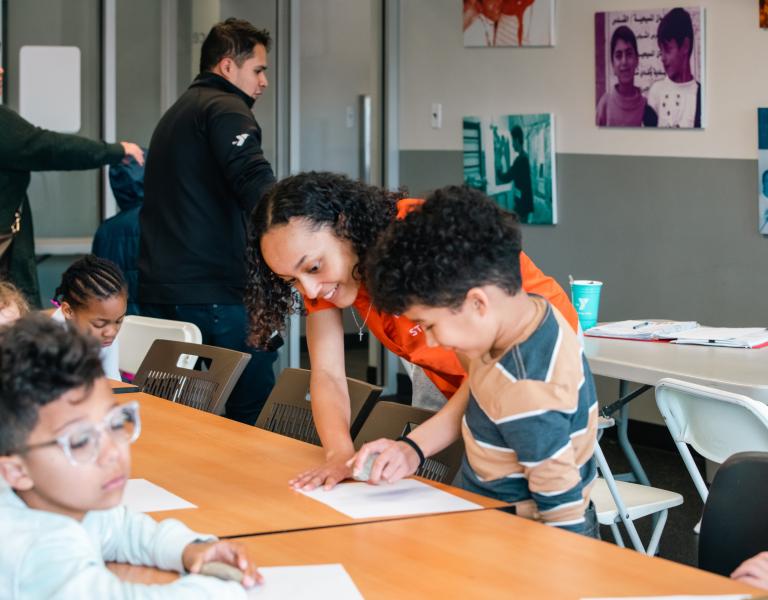Insights on Impact
Our CLCs are remarkably successful and have a demonstrated track record of improving academic, health, and social-emotional outcomes, as well as decreasing social isolation and promoting a sense of hope among those dealing with hardships or trauma. We measure the success of our CLC program using both quantitative and qualitative evaluations. Our quantitative evaluations include measuring our per-school registration and attendance targets and number of students participating on a weekly, monthly, and quarterly basis. Our goal is that 80% of registered students participate in 30 days of program activities each year.
To measure program quality, we use the Weikart Center’s Youth Program Quality Assessment (YPQA), the YMCA Youth Development Survey, and program audits to evaluate and inform program, activities, environment, and staffing quality:
- The YPQA is an evidence-based assessment tool and is performed bi-annually by both outside evaluators and senior leadership staff and assesses how well our program engages students, supports their success, establishes high expectations, and is youth-centered.
- The Youth Development Survey is performed bi-annually and measures students’ satisfaction with the program and staff and assesses whether we are delivering high-quality youth development.
The results of the YPQA and Youth Development Survey are reviewed by senior leadership, program directors, and staff and used to make changes to the program to ensure that we are delivering high-quality programming and experiences to students.
We measure and evaluate school district indicators of student performance including grade point average (GPA), school attendance, and behavioral referrals/student discipline. We also use community indicators (Graduate Tacoma) to measure and evaluate 6th-grade achievement and 8th-grade math standards (passing algebra/geometry). Additionally, we use the Child and Youth Resilience Measurement (CYRM) tool to measure and evaluate social-emotional markers and skill development.
Our outcomes data is further corroborated by powerful anecdotal testimony from students, parents, and teachers. We typically serve over 1,000 students who participated in over 2,000 opportunities through over 150 different learning activities. In the 2022-2023 school year alone, 1,442 students between the Clover Park and Tacoma School Districts participated in these opportunities.
Further Reading:
- Washington Office of Superintendent of Public Instruction: Truman Middle School, Tacoma School District 2023 Report Card
- Tacoma Public Schools: Title I & Learning Assistance Program (LAP) Information
- Peace Point, Tacoma/Pierce County: "Disrupting and Healing Trauma Associated with Youth Violence"
- University of Washington & the City of Tacoma: The Livable City Year Project
